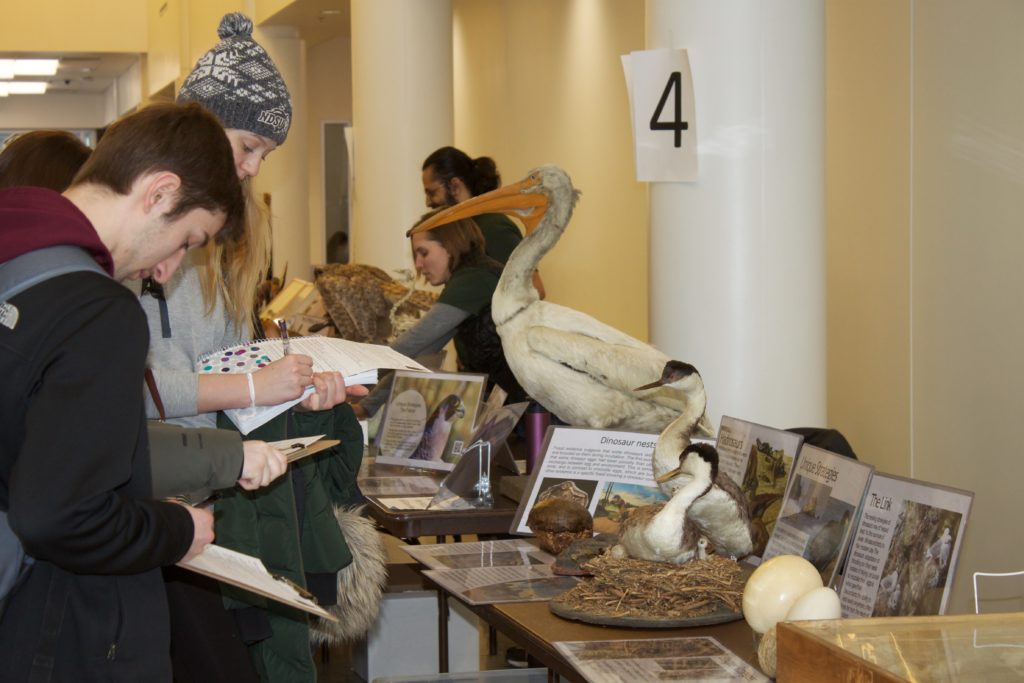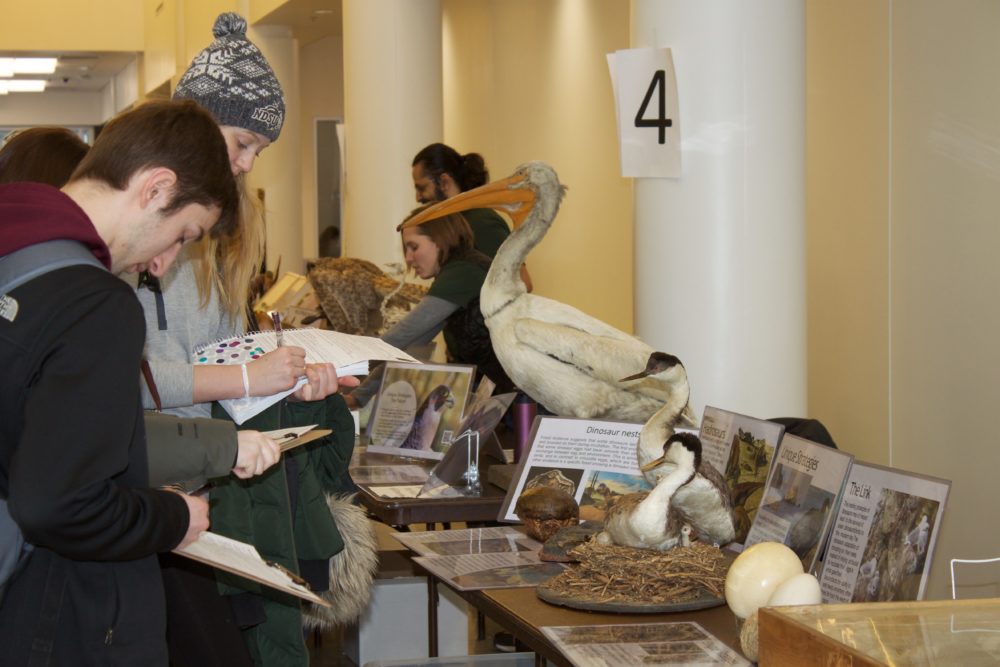NDSU Darwin Days bring science to life

The 10th annual North Dakota State Darwin Days took place Feb. 14 and 15. The event was put on by the departments of biological sciences, geosciences and animal sciences and the College of Science and Mathematics.
Amongst the fun were pop-up exhibits showing aspects about science such as the evolution of birds, insects and even humans.
Throughout the two-day event, Charles Darwin and his work were celebrated along with his actual birthday, which was Feb. 12.
Darwin Days had several tables set up showing plants, animals and human specimens, educating everyone on how evolution over the years has changed the world we know today.
There were many displays of fossils, plants and models of bird’s nests to name a few. Darwin Day T-shirts were also being sold to anyone that wanted to take home a souvenir.
“Everyone should be interested in Darwin’s work because it explains so much about the world around us.”
Steven Travers, associate professor of biology
Edmund D. Brodie III, who works in the department of biology at the University of Virginia, gave a presentation titled, “Poisonous Newts and the Snakes that Eat Them: Convergence and Constraint in a Convolution Army Race.” Throughout the presentation, Brodie discussed how his father, Edmund D. Brodie Jr, helped him to become interested in biology. This led him to conduct research on how garter snakes have evolved over time to be able to eat poisonous newts.
Newts are part of the salamander family and are very poisonous if consumed because they typically don’t bite. Brodie showed how garter snakes have adapted over time to be able to store venom in their liver and use it against their prey. Brodie’s presentation left the audience thinking about how animals and humans can adapt to their environment.
Steve Travers, an associate professor of biology at NDSU, said, “Two faculty members in the department of biological sciences, Peggy Biga and Kendra Greenlee, originally suggested the idea of Darwin Days.” Though the event now takes place in the A. Glenn Hill Center, it started off as a small event in the Memorial Union. “At that time, we had a panel discussion on the importance of evolution in the sciences. The panel was made up of NDSU faculty from different departments, and we took questions from the audience,” Travers said.
Now, Darwin Days has grown to feature a pop-up museum and a new guest speaker every year. Members of the community join in on the festivities, bringing their children along to explore the wonders of science.
The main purpose of bringing awareness to science and Charles Darwin, which was the goal of Biga and Greenlee, seems to have been accomplished by how busy the event was throughout both days.
“Everyone should be interested in Darwin’s work because it explains so much about the world around us,” Travers said. “Whether you are a scientist or not, humans are curious creatures and wonder about the life on the planet, how it got to be the way we see it today and what has gone on in the past.”
Not only were students able to connect to science through the exhibits, they also left understanding why evolution is so important. Darwin Days aimed to explain how evolution ultimately impacts humanity and the environment we live in.
A lot of people stopped by the event, whether it was to turn in a worksheet for their science class or to check out what the biology department had to offer. “Personally, my favorite aspect for Darwin Days is when visitors make their own connections between things they are familiar with and evolution,” Travers said. NDSU’s department of biological sciences will continue to host Darwin Days in the future to give further insight on Charles Darwin and his impact on science.
